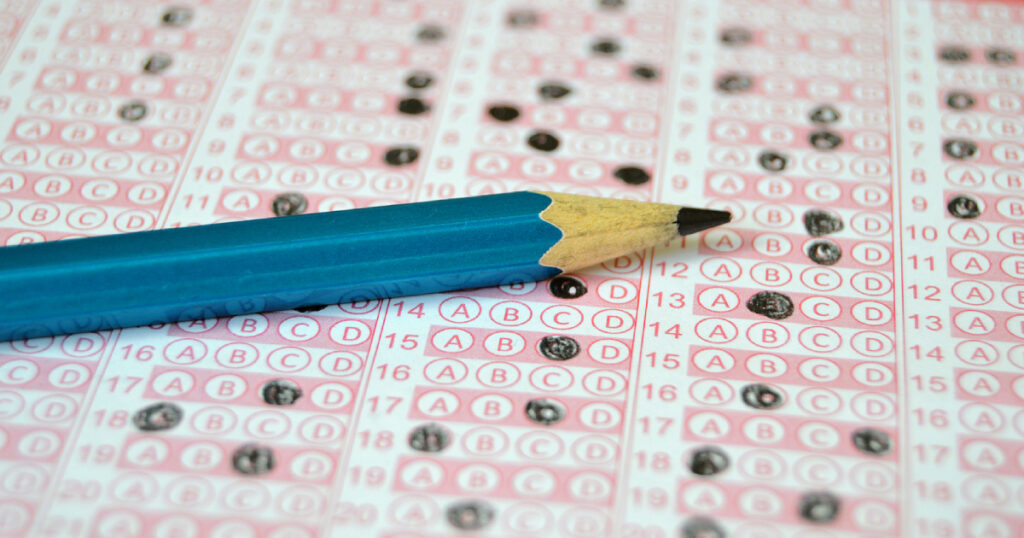
The education system in Singapore is known for its rigour, discipline, and well-defined benchmarks. Traditional high-stakes examinations like the PSLE and O-Levels have long stood as gatekeepers, determining a student’s academic path. For students preparing for a major exam, these assessments often shape not only their study habits but also their stress levels and sense of self-worth. However, with the Ministry of Education (MOE) introducing more school-based assessments (SBAs) over the years, the question arises: are these alternative forms of evaluation more effective in measuring a student’s learning and potential?
This debate has gained traction, especially as parents and educators increasingly question whether exams truly reflect a student’s capabilities or simply reward good memory and test-taking strategies.
Let’s explore the evolving role of assessments in Singapore’s education landscape.
Understanding school-based assessments and how they differ from exams
School-based assessments include a range of activities conducted throughout the academic year, such as class tests, quizzes, projects, oral presentations, and group work. Unlike final examinations, which often focus on a narrow slice of content under time pressure, SBAs aim to provide a more holistic and continuous evaluation of a student’s academic progress.
Where exams are typically summative—evaluating what students have learned at the end of a term or year—SBAs are often formative, designed to provide ongoing feedback to help students improve. By observing students over time and across different tasks, teachers can build a more comprehensive picture of their strengths and weaknesses.
Benefits of school-based assessments
One of the strongest advantages of school-based assessments is that they reduce the pressure of a single make-or-break exam. For many students, especially those in younger levels such as Primary and Lower Secondary, exam anxiety can significantly affect performance. By spreading the weight of assessment across multiple tasks, SBAs help to promote consistency and reduce performance dips due to stress or health issues on exam day.
SBAs also encourage deeper learning. When students are required to engage in projects or collaborative activities, they are more likely to understand concepts rather than just memorising facts. For example, a science project requiring students to conduct experiments and present findings fosters critical thinking and application, which are often neglected in traditional exams.
Furthermore, continuous assessments offer more immediate feedback, allowing teachers to identify learning gaps early and adjust their teaching accordingly. This dynamic and responsive approach is especially useful for subjects that require conceptual understanding and skill-building, such as Mathematics and Science. A primary math tuition centre that aligns its curriculum with school-based assessments, for instance, can help students develop a stronger grasp of foundational concepts through regular practice and feedback.
Challenges and limitations of school-based assessments
Despite their benefits, school-based assessments are not without limitations. One key concern is consistency and fairness. Since SBAs are internally designed and administered by individual schools, the standards and difficulty levels may vary. This makes it difficult to compare performance across schools, something that national exams are better positioned to do.
Subjectivity can also creep into assessments that are not purely objective, such as oral presentations or group work. Personal biases, classroom dynamics, and grading rubrics can all influence outcomes. Moreover, group-based assessments might mask individual strengths or weaknesses, particularly when some students take on a heavier share of the workload.
Another issue is the potential increase in workload. To ensure fair evaluation, teachers must design diverse assessments, provide detailed feedback, and manage administrative tasks. This can lead to burnout if not well-managed and may compromise the quality of instruction. Parents too may feel the burden as they try to support their children through multiple assignments and deadlines throughout the term.
The continued relevance of exams
While exams have their critics, they still serve an important role in Singapore’s education system. Exams provide a standardised, time-bound benchmark that is generally considered objective and efficient. They help differentiate students based on their ability to understand, recall, and apply information under pressure—skills that are still relevant in many academic and professional settings.
Moreover, exams are useful for identifying high performers in a system where academic credentials are used for progression to elite schools and universities. From a policy standpoint, standardised exams offer large-scale data that informs curriculum planning and national education goals.
For this reason, exams are unlikely to disappear anytime soon. Instead, the shift in recent years has been towards balancing exams with school-based assessments, rather than replacing one with the other entirely.
What students and parents should consider
When considering whether SBAs are a better measure than exams, it’s important to remember that no single method is perfect. The most effective system is one that incorporates the strengths of both. For example, lower secondary science tuition often prepares students not just for written tests, but also for practical assignments and investigations that mirror SBA components. This dual approach equips students to perform across various types of assessments.
Parents should also be aware of their child’s learning style. Some students thrive in continuous, project-based environments, while others excel under time-bound conditions. Understanding this can guide the choice of tuition support or supplementary learning resources. Whether you’re looking for a science tutor who offers hands-on experiments or a math tuition centre that focuses on conceptual clarity, the key is to find support that complements your child’s needs.
Finding the right balance through evolving practices
The conversation surrounding school-based assessments versus exams reflects a broader shift in education: the move towards learning that is meaningful, personalised, and lifelong. As schools experiment with different forms of assessment, the goal is not to abolish exams entirely but to recognise that success should not hinge on a single event.
MOE’s recent adjustments, such as removing mid-year exams and increasing the weight of continuous assessments, are steps towards a more balanced and inclusive system. These reforms acknowledge that learning is a process, not a destination.
Conclusion
Both school-based assessments and exams offer valuable insights into a student’s academic journey. While SBAs promote consistency, creativity, and deeper learning, exams continue to play a role in benchmarking and selection. Ultimately, a hybrid approach that combines the strengths of both will serve students best.
At Ace Academia, we understand the evolving demands of Singapore’s education system. That’s why our programmes are tailored not just for exam success, but also to help students adapt to continuous assessment formats. With experienced tutors, including ex-MOE teachers, we bridge the gap between classroom teaching and effective academic support. Whether your child is preparing for assessments or national exams, we’re here to help them thrive.




